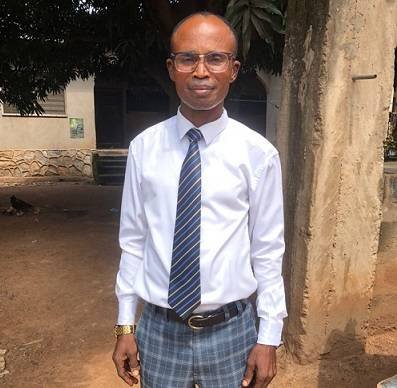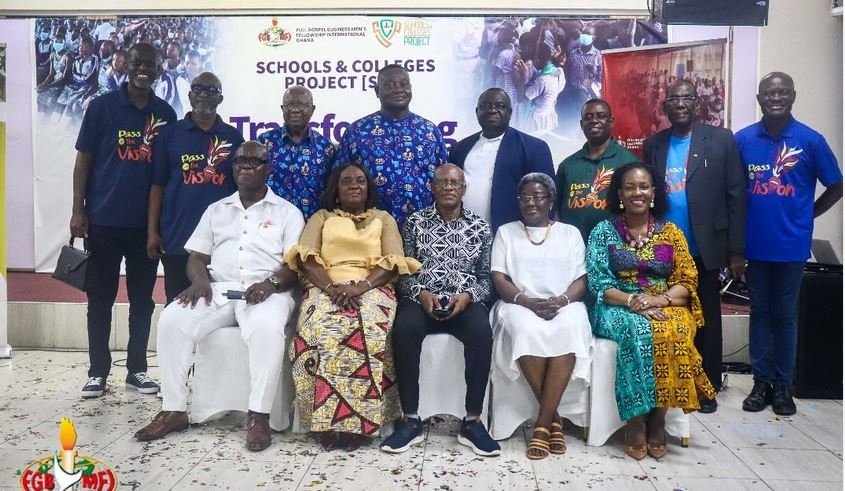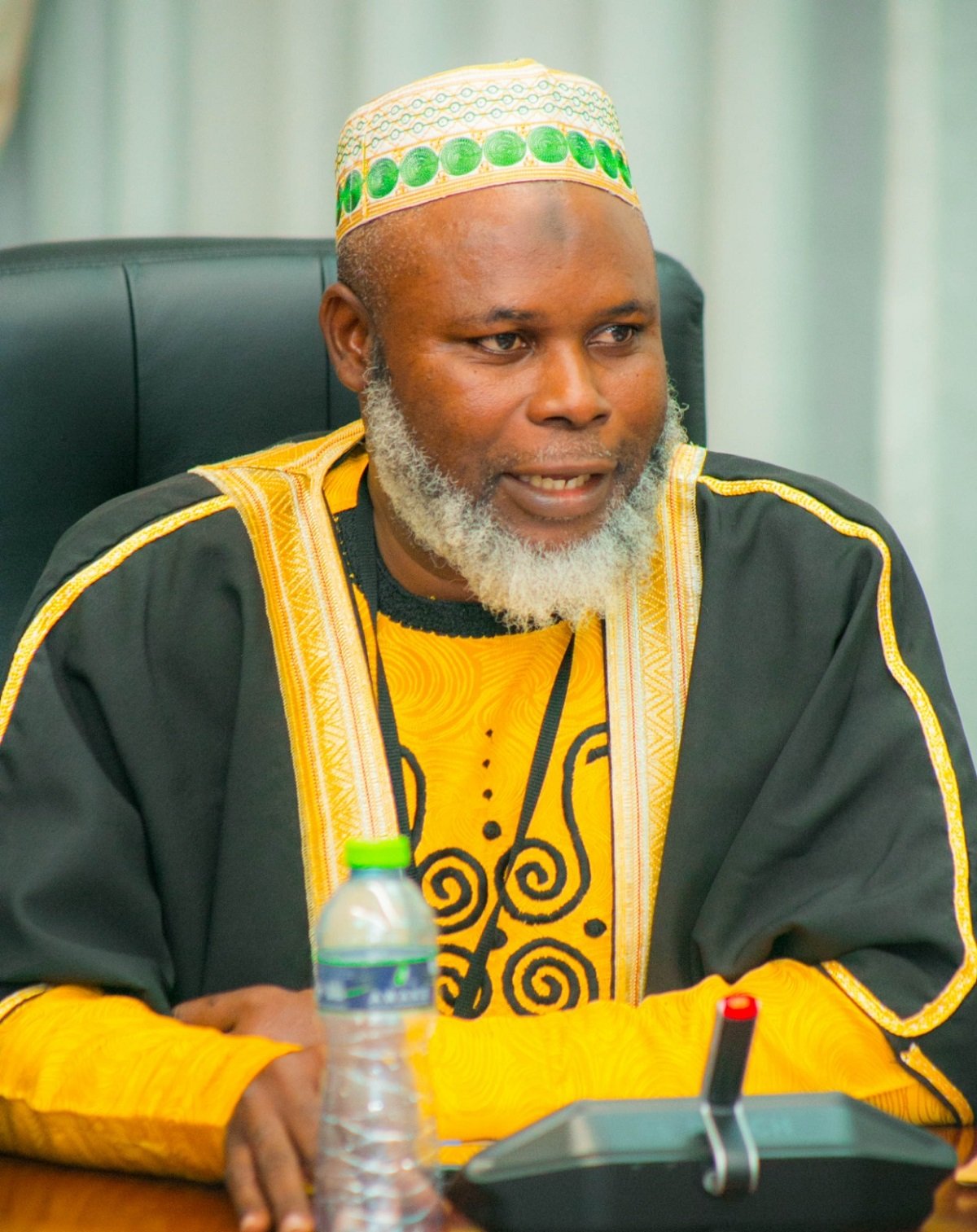Fruitful Living
Christians advised to choose friends wisely

An Elder of the Church of Pentecost, Malejor Assembly, George Nkansah has urged Christians to exercise discernment in choosing their friends.
In a compelling sermon to the congregation on the theme ‘Who is your friend?’ Elder Nkansah emphasised the impact friends can have on one’s life and distinguish between those who bring positive influences and those who can lead one astray.
Based on the scriptures – 1st Samuel 18: 1-5 and 19:1-4, Elder Nkansah shared with the congregation the enduring friendship between Jonathan and David.
He highlighted the pivotal moment when Jonathan, aware of Saul’s plot to harm David, warned his friend and urged him to flee.
This, according to Elder Nkansah, exemplified the essence of true friendship, a bond that transcends mere companionship to encompass support and protection in times of adversity.
Elder Nkansah underscored the negative influence of bad friends, referencing 2nd Samuel 13.
“In this passage, Jonadab’s detrimental impact on Amnon served as a cautionary tale. Instead of steering Amnon away from his misguided intentions towards his sister, Tamar, Jonadab facilitated harmful strategies.”
Elder Nkansah used this example to warn the congregation, particularly the youth, against the pitfalls of associating with harmful influences.
Elder Nkansah urged the youth to be vigilant in choosing their friends and recognise the potential for negative influences that could lead them astray.
He emphasised the need for divine guidance to avoid falling into the hands of those who may compromise their values.
Concluding his sermon on a spiritual note, Elder Nkansah extolled Jesus Christ as the ultimate and unwavering friend every Christian should seek.
Unlike fallible human companions, Jesus, he said, is a confidant who will never disappoint or betray.
By George Obeng Osei
Features
Full Gospel Businessmen Fellowship launches project to transform young lives

The Full Gospel Businessmen’s Fellowship International (FGBMFI) Ghana has launched the Senior High Schools and Colleges Project (SCP) aimed at empowering and transforming the lives of young people.
Speaking at the launch, Professor Mike Ocquaye, the former Speaker of Parliament, emphasised the need to catch them young and train them as the current times were challenging.
He lauded the project, calling on all to support it, saying “In fact, it’s very important to catch them young, train them, lead them, guide them, and mentor them because the times are indeed rough,” Prof. Ocquaye said.
Mr Ekow Egyir Dadson, the Director, Schools and Colleges Directorate, stated that since its inception in 2018, the SCP had reached over 70 educational institutions with countless testimonies of transformation.
“We began with the Presbyterian Boys Secondary School (PRESEC) Legon, and now in 2024, we have visited 74 schools and impacted the lives of over 100,000 students, some of whom were personally mentored and now have graduated from the universities.”
He explained that the SCP, a vision by FGBMFI Ghana, was a bold outreach programme designed to call young people to Christ, train and equip them for the future.
He cited testimony-sharing, mentorship, career guidance, entrepreneurship and counseling as some of the unique approaches to be used in reaching out to the targeted students.
Mr Emmanuel Baba Mahama, the National President of the FGBMFI Ghana, launched the SCP Manual, which would help the FGBMFI Zonal Family Chapters across Ghana in order to adopt schools and colleges within their catchment areas.
The Schools and Colleges project is making a great impact; we have had first-hand testimonies from school heads, teachers, and students (mentees) about the SCP. This project has come to stay, Mr Baba Mahama assured.
He, therefore, called for more volunteers and partners to help the SCP shape the next generation of leaders and citizens.
Findings by the FGBMFI revealed that Ghana’s senior high schools, colleges, and university students face growing challenges like addictions, indiscipline, poor academic performance, pornography, homosexuality, broken homes, and a lack of godly guidance.
That had been a concern to many parents and society, “but the FGBMFI believes there is hope to rescue and restore these young students,” Mr Mahama said. –GNA
Features
Divorce in Islam

In another instance, the Prophet (PBUH) recommended arbitration and family intervention in cases of marital disputes.
“If you fear dissension between the two, send an arbitrator from his family and an arbitrator from her family. If they both desire reconciliation, Allah will cause it between them” (Qur’an 4:35).
This Quranic text emphasises the importance of seeking reconciliation through family and community support.
Conditions and Rules of Divorce in Islam
Islam sets forth conditions and rules to ensure that divorce is handled responsibly:
Clear Intention: The decision to divorce must be made with a clear mind and sincere intention, free from anger or impulsivity.
The Waiting Period (Iddah): After pronouncing divorce, the wife must observe an iddah period, during which the husband can take her back if both agree. The iddah period is three menstrual cycles for a non-pregnant woman or until childbirth if she is pregnant.
Revocable and Irrevocable Divorce:
Revocable Divorce (Talaq-e-Raj’i): The husband can take back his wife within the iddah period if reconciliation is achieved.
Irrevocable Divorce (Talaq-e-Ba’in): After the third talaq, the divorce is final, and reconciliation is only possible through a new marriage contract if both agree.
Respect and Dignity: Islam commands respect and fairness during divorce proceedings, ensuring that both parties maintain dignity. Allah (SWT) advises:
“And live with them in kindness. For if you dislike them—perhaps you dislike a thing and Allah makes therein much good” (Qur’an 4:19).
This verse encourages respect, even if differences arise.
Rights to Seek Divorce by the Husband or Wife
Islam grants both spouses the right to seek divorce, although their procedures differ.
Rights of the Husband (Talaq): A husband has the right to initiate talaq, following Islamic procedures. He must observe fairness, fulfill his wife’s rights, and provide any outstanding mahr or iddah maintenance.
Rights of the Wife (Khula): A wife can seek divorce through khula, which involves returning part or all of her mahr to end the marriage. The Prophet (PBUH) permitted khula for the wife of Thabit ibn Qays (RA) when she requested separation.
“Then if you fear that they will not be able to keep [within] the limits of Allah, then there is no blame upon either of them concerning that by which she ransoms herself” (Qur’an 2:229).
Reasons for a divorce by both parties
In order to divorce a wife, a husband may not necessarily have to give a reason. However, in the case of a woman, she may initiate a Khula (Separation) for three reasons; her husband’s in ability to consummate the marriage, his failure to provide for her upkeep, and if the woman was married as a child or without her consent she can repudiate her husband when she reaches puberty (Mucai-Kattambo et al. 1995). In addition a woman can apply for a khula if she persistently faces domestic violent.
Divorce Under Legal Regimes: The Mohammedan Ordinance CAP 129
In Ghana, the Mohammedan Ordinance CAP 129 regulates Islamic marriages and divorces. It provides a formal legal framework for Muslims to marry, divorce, and remarry in line with Sharia principles. This ensures that divorce proceedings, rights, and responsibilities are recognized by law, protecting both parties’ rights according to Islamic teachings.
Remedies for a Wrongful Divorce
Reconciliation: Islam encourages reconciliation if a divorce was issued hastily. The Prophet (PBUH) often advised families to mediate, promoting forgiveness and mutual understanding.
Financial and Social Support: If a husband neglects his wife’s rights upon divorce, she can claim compensation, unpaid mahr, and iddah maintenance. Islam emphasises justice and fairness for divorced women to ensure they are not left destitute.
Community Support: The Muslim community is encouraged to provide support for divorced individuals, allowing them to reintegrate with dignity and support, upholding Islamic principles of compassion.
EFFECTS OF DIVORCE ON CHILDREN
One significant concern is the impact of divorce on children. Patel et al. (2008) in “The Harm of Talaq” note that children from broken homes face higher risks of emotional distress, academic challenges, and social instability. Parents must consider these effects when making decisions, ensuring the wellbeing of their children.
More precisely, children from broken homes are more likely to have poorer health; to do worse in madrassas and schools; less likely to attend the massajid; become hufaz and Islamic scholars; more likely to commit crime, to smoke and take drugs; to be unemployed and to die earlier than children who live with married parents. By divorcing parents have let loose a vicious cycle. Their children are more likely to repeat the cycle of unstable parenting which they had experienced and suffered (Patel et al., 2008).
In conclusion, divorce in Islam is a compassionate solution, regulated to ensure justice and respect. While it is permitted, it is only to be used as a last resort, with the utmost care and fairness. Islam emphasizes kindness, patience, and thoughtful reconciliation to resolve marital issues before resorting to divorce.
May Allah (SWT) guide us to act with wisdom and justice in our relationships and protect our families with love and mercy. Ameen.
References:
• Qur’an, Surah Al-Baqarah (2:229, 2:230, 2:231, 2:232, 2:236, 2:237), Surah An-Nisa (4:19, 4:35), Surah At-Talaq (65:4)
• Hadith from Sunan Abu Dawud (2178), Sahih Bukhari, Sahih Muslim
• Mohammedan Ordinance CAP 129
• Patel, A. A. et al., 2008), Blessings of Marriage (Harm of Talaq {Divorce), Page 278.
By Imam Alhaji Saeed Abdulai – 1BN Michel Camp, Tema



